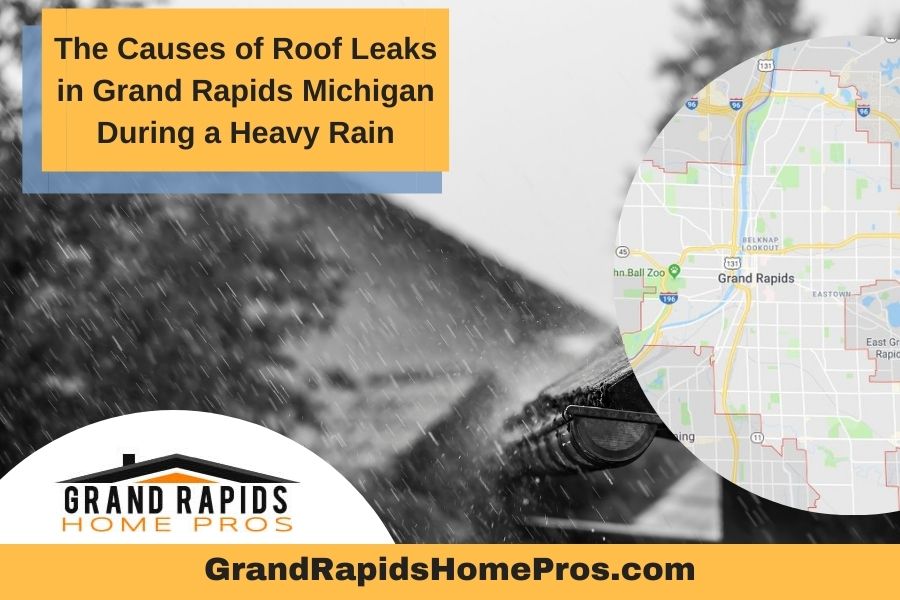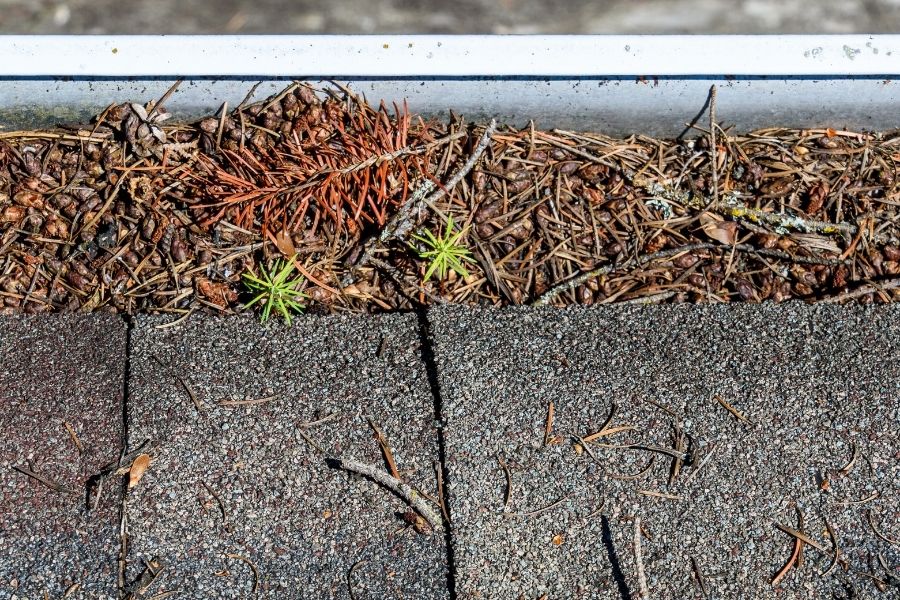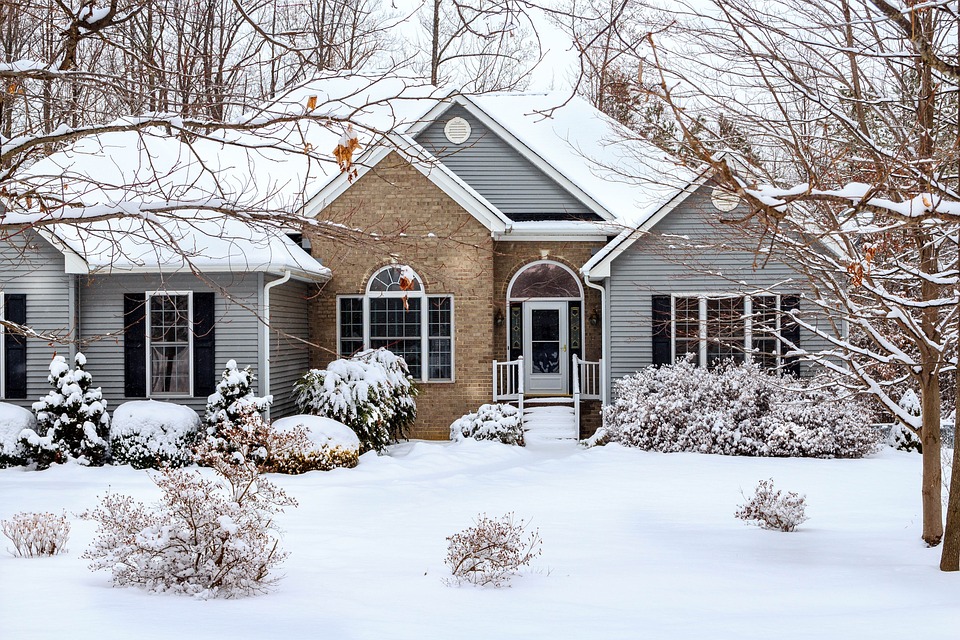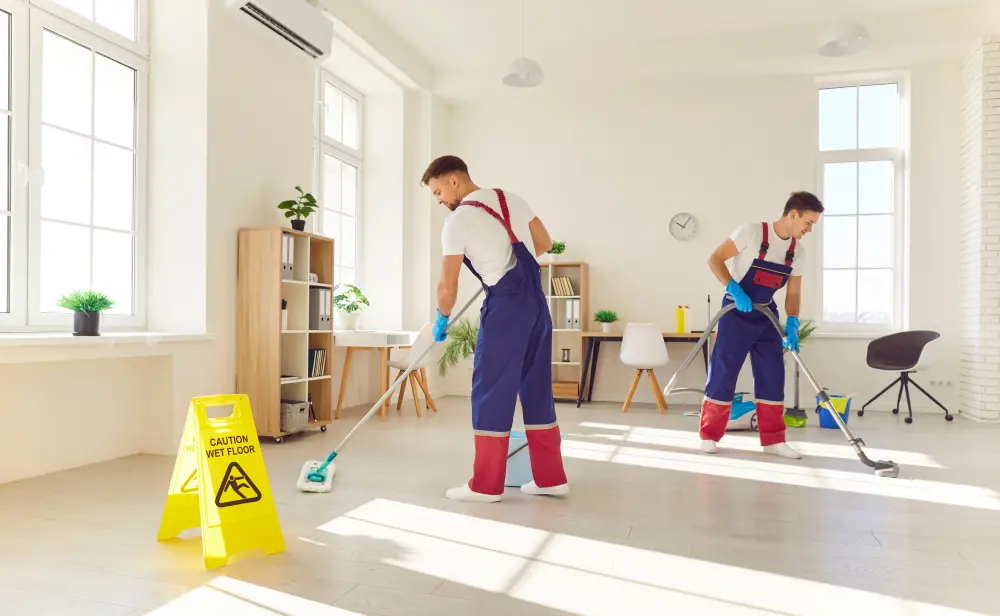If you’re a homeowner, you know that there are few things more frustrating than a leaky roof. And if it’s raining hard outside, the leaks can seem even more relentless. But what causes roofs to leak during rainstorms in the first place? And is there anything homeowners can do to prevent their roofing in Grand Rapids Michigan from leaking?
The Causes of Roof Leaks in Grand Rapids Michigan During a Heavy Rain
In this article, we’ll take a look at the most common causes of roof leaks during heavy rainstorms. We’ll also discuss what homeowners can do to mitigate the problem and prevent future leaks.

Improper Installation or Repairs Can Mean a Leaky Roof
One of the most common causes of roof leaks is improper installation or repair. If your roof was not installed correctly, it’s more likely to leak during a heavy rainstorm. This is because the shingles or other materials that make up your roof are not properly sealed, allowing water to seep through.
The Age and Condition of the Roof
Another common cause of roof leaks is wear and tear. Over time, your roof will degrade and become less effective at keeping out water. This is especially true if your roof is exposed to harsh weather conditions on a regular basis. If you live in an area that experiences a lot of rain or wind, you’re more likely to experience roof leaks.
Does Your Roof Have Good Drainage?
Leaks can also be caused by faulty drainage systems. If your gutters are clogged or your drainage system is not working properly, water will accumulate on your roof and eventually leak through the tiles or shingles. This can be especially bad in winter when temperatures drop below freezing and the water freezes on the roof. This can also create problems such as roof ice dams which can cause a roof leak.

Make Sure Trees and Other Objects Are Clear of Your Roof
In addition, trees or other objects near your house can cause roof leaks during a storm. If tree branches are rubbing against your roof, they can create tiny holes that allow water to seep through. Or if there is a large tree near your house, the roots can damage your roof’s foundation, leading to leaks.
What Should You Do?
If you’re experiencing a roof leak during a heavy rainstorm, there are several steps you can take to mitigate the problem. The most important thing is to find the source of the leak and address it as quickly as possible. You can do this by inspecting your roof closely and looking for any signs of water damage.
It’s best to do this by looking in your home’s attic for the source of the leak. Going on your roof can be dangerous and you may cause even more damage by doing so. If you can’t find the source of the leak, you may need to call a professional roofing contractor for assistance. They will be able to inspect your roof and find the source of the leak quickly and efficiently.
Once the source of the leak has been identified, you can begin to address it. This may include repairing or replacing damaged tiles or shingles, cleaning out your gutters, or fixing a faulty drainage system.
Take Preventative Measures to Prevent Future Roof Leaks
It’s also important to take preventative measures to protect your roof from future leaks. One way to do this is to get regular roofing inspections done on your home. This will help to identify potential problems and allow you to address them before they become a roof leak.
You can also improve the drainage around your house by installing downspouts and diverters. And if you have any trees or other objects near your house, make sure to keep them trimmed back so they’re not rubbing against your roof.
A leaking roof can be a major annoyance during a rainstorm. But by taking the proper steps to address the problem, you can minimize the damage and prevent future leaks.
Is It Time for a New Roof?
Sometimes homeowners want to get every little bit of life out of their old roof before getting a new roof installed. However, by doing so you may be pushing the limits a bit too much. If your roof is needing to be replaced, rather than put it off any longer, go ahead and get a new roof installed. Contact Grand Rapids Home Pros today to get a free quote!








